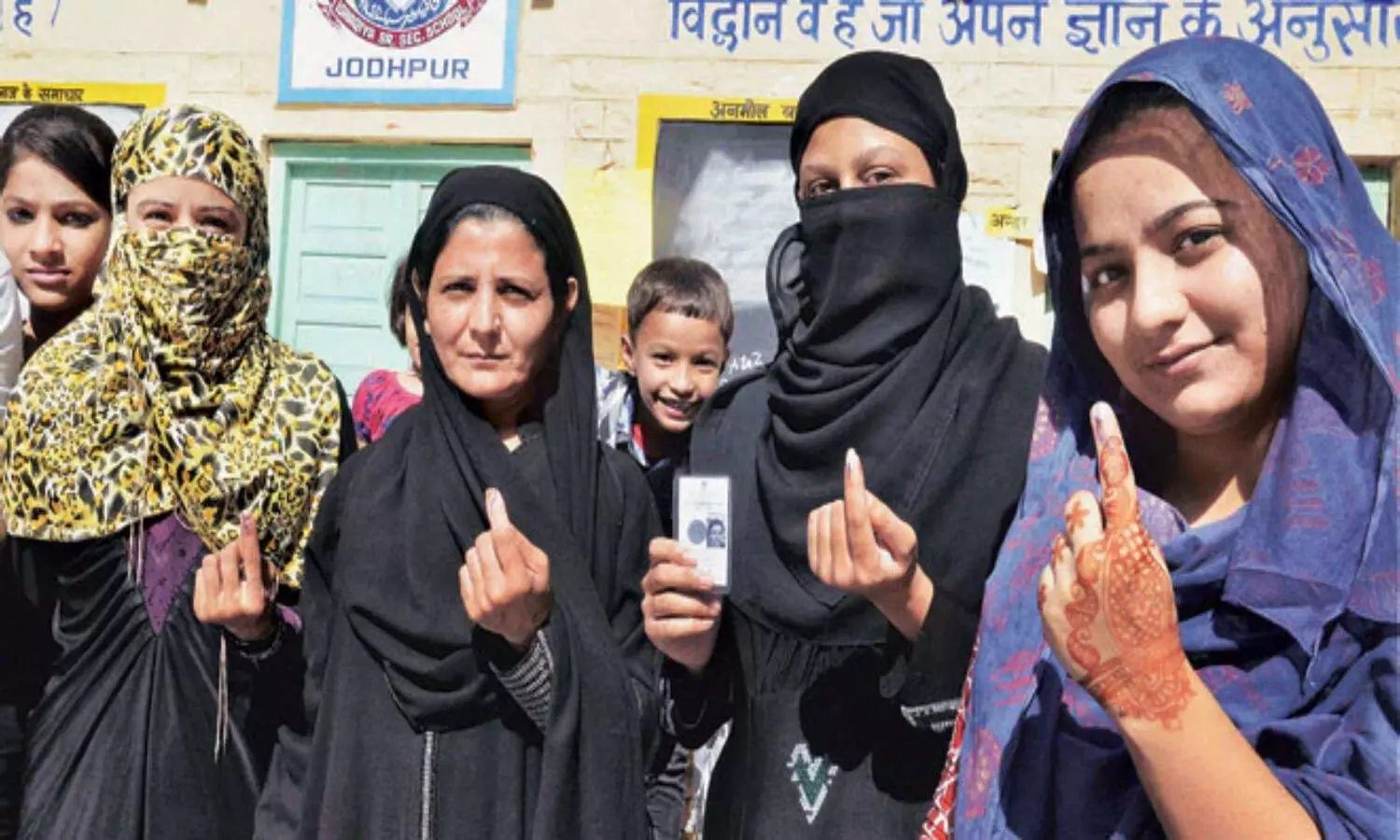Opinion: The role of Muslim women voters in India’s General Elections 2024
Muslim women when compared to other minority and majority religions face educational and economic disadvantages in India
By Irfan Aziz
Hyderabad: Out of the nearly billion people who will cast their votes to choose the next government in India, a staggering 471 million are women.
However, when we compare Muslim women to those from other minority and majority religions, we find that Muslim women face educational and economic disadvantages in India. The socio-economic conditions of women from most other minority groups are better than those of Muslim women.
Constitution as the backbone
India stands as one of the largest democracies globally, with a significant minority population. Since gaining independence in 1947, India has functioned as a republic. The Constitution not only ensures equal treatment for women but also encourages the state to adopt measures that support women in overcoming socio-economic, educational, and political challenges. Our Constitution applies equally to all, regardless of gender, wealth, race, religion, or region.
A true democracy not only protects individual rights but also safeguards the rights of minority communities. Articles 25 to 30 of the Constitution outline the rights of religious, cultural, and linguistic minorities, making India a truly democratic and pluralistic nation.
Census data on minorities
According to the 1991 Government of India Census, there are over 48 million Muslim women in India.
Fragmented statistical and micro studies on Muslim women consistently highlight their disadvantaged status. Out of the 16 Lok Sabhas since independence, five did not have any Muslim women members. Until 2014, only 21 Muslim women had been elected to the Lok Sabha, and by 2010, only 15 Muslim women had entered the Rajya Sabha. One significant reason for this lack of representation is the patriarchal structure within Muslim society, which hinders overall political participation.
Interestingly, during the late 1980s, then-prime minister Rajiv Gandhi, along with Dr Sam Pitroda, ushered in an electronic revolution and computerisation, laying the foundation for today’s India. However, despite this progress, one section of society missed out on opportunities: the Muslims, especially Muslim women. To break the glass ceiling, Muslim women can actively participate in the democratic process by casting their votes and by exercising their vote they can choose the right government.
Under a new government
A new government can bring change to uplift Muslim women through new policy initiatives and rolling out schemes on education and health care.
The Congress party, through various schemes, policies and women-centric initiatives, has consistently worked towards empowering all sections of society and especially, women empowerment is what we have been consistently focused on.
Some of the policy initiatives that we will bring for Muslim women if Congress comes to power are:
- Restore the Maulana Azad Scholarships for education abroad and increase the number of scholarships, The economic empowerment of minorities especially women is a necessary step for India to realise its full potential
- We will ensure that banks will provide institutional credit to minorities without discrimination.
- We will ensure that minorities receive their fair share of opportunities in education, healthcare, public employment, public works contracts, skill development, sports and cultural activities without discrimination.
- We will encourage the reform of personal laws. Such reform must be undertaken with the participation and consent of the communities concerned.
My appeal to more than 48 million Muslim women voters is for them to recognise the power of your vote. Voting is your right and exercising it during elections can transform your life by choosing Congress. India, as a democratic country, provides an opportunity for all citizens to shape not only their future but also that of their families, society, and the nation as a whole.
The writer is Irfan Aziz, All India Professional Congress, president of Secunderabad Chapter & Congress Manifesto Head from Telangana.
Disclaimer: The views and opinions expressed in the article are those of the author and do not reflect the official policy or position of NewsMeter.